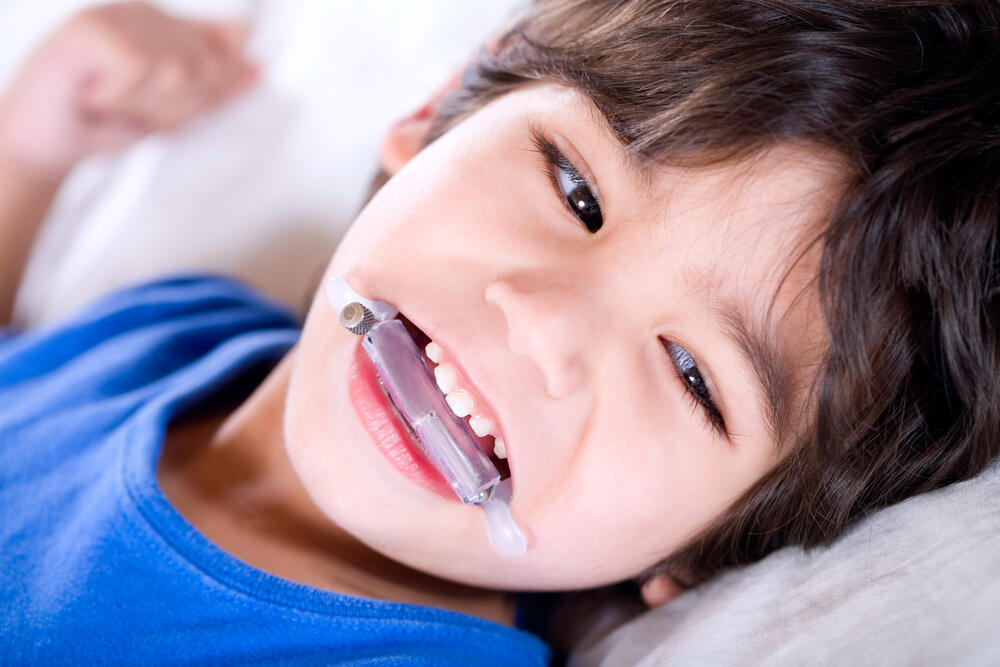It may be somewhat problematic when your kid or newborn clenches and grinds their teeth. While the sound of newborn grinding teeth may make you wince and make you wonder whether they’re harming those freshly sprouted pearly whites, it’s familiar and typically quite acceptable. A teething infant or toddler is experiencing new sensations, and grinding might be a way for them to explore or cope with the pain of a tooth breaking through the gum line. Children’s teeth grinding is more prevalent than you would believe. Before the age of five, an estimated three out of ten children grind their teeth. It’s usually nothing to be concerned about, and most youngsters outgrow it by the age of six. Teething or poor tooth alignment are the most common causes of teeth grinding.
However, teeth grinding, also known as bruxism, may be a problem. So why do kids grind their teeth, when is it a problem, and what can you do to keep your child’s smile healthy? Pediatric dentist Indianapolis IN will explain why kids grind their teeth, when it’s a problem, and what you can do to keep your child’s face healthy.
What Exactly Is Bruxism?
Bruxism is a disorder that may affect individuals of all ages, including children. It includes teeth grinding, clenching, or gnashing. It’s usually unconscious, which means youngsters do it without realizing it. Awake bruxism occurs when children grind their teeth while awake. Sleep bruxism is the grinding or clenching of teeth while sleeping. Sleep bruxism in children may lead to other sleep problems such as snoring or sleep apnea.
Teeth grinding is generally not a hazardous habit, and most children grow out of it. However, the most significant “impact” is often a parent’s concern over their child’s grinding sound.
Other youngsters may have jaw discomfort as a result of grinding their teeth. While your infant may not be able to communicate that this is the source of their pain, stroking their jaw regularly might be an indication.
What Causes Children To Grind Their Teeth?
As previously said, a newborn or toddler grinding their teeth might be a means for them to learn about how their mouth works or a reaction to teething discomfort. While it occurs often, children’s bruxism may be caused by worry, tension, or frustration, or it may be an unconscious habit developed when they are focusing very hard. Sleep bruxism may be caused by fear, but it’s more often caused by arousal during sleep, such as the awakenings associated with sleep apnea, affecting youngsters. Other variables that contribute to kids grinding their teeth include:
- Age – Teeth grinding is frequent in young children, and it usually goes away by the time they reach adolescence.
- Drugs – Some medications, such as those used to treat ADHD, might make children more likely to grind their teeth.
- Genetics – Sleep bruxism is a condition that may run in families.
- Other Disorders – Sleep apnea, seizures, night terrors, and ADHD have all been linked to tooth grinding in youngsters.
Bruxism Signs And Symptoms
Children Dental Center Indianapolis IN has compiled a list of indications that indicate your child’s teeth grinding may warrant further investigation:
- If your kid has difficulty sleeping or wakes up often throughout the night
- Soreness or discomfort in the jaw
- Headaches
- Tooth sensitivity or discomfort that isn’t caused by other dental problems
- Teeth start to show symptoms of wear
- Damage to the mouth’s soft tissues
- Loud, continuous grinding that doesn’t seem to go away with time
Discuss With Pediatric Dentist About Teeth Grinding
Mild bruxism in newborns and toddlers is unlikely to need treatment, and they will probably outgrow it. According to a children’s dentist in Indianapolis, IN, there are always exceptions to typical teeth grinding that indicate various symptoms. If you’re worried, you can always discuss it with your child’s pediatric dentist at their routine checkup. Damaged or worn teeth, tooth and jaw discomfort, earaches, and headaches may result from more vigorous grinding. It’s a good idea to keep a closer check on teeth grinding in older children to don’t harm their permanent teeth. If your kid is in discomfort due to teeth grinding, make an appointment with your pediatric dentist.
Prevention Strategies from Teeth Grinding
If your toddler or infant is grinding their teeth due to teething, you may give them a teething toy to gnaw on. Chewing on items helps relieve some of the agonies of a tooth coming in by applying counterpressure. For example, you might offer them a damp, cooled washcloth to gnaw on as a teether.
Grinding your teeth against each other may cause them to wear down, affecting your bite, eating, and digestion. In severe circumstances, your teeth may be worn down to the point where crowns, bridges, or dental implants are required to repair the damage.
In the short term, tooth grinding may cause painful jaws, loose teeth, and dental discomfort in children. Over time, bruxism may lead to tooth loss, jaw misalignment, and hearing loss. Grinding your teeth might also produce a gradual alteration in the look of your face.
If you suspect teeth grinding in older children is caused by worry or stress, attempt to identify the source of the issue. Teeth grinding may be stopped by addressing the source of the stress and teaching them different coping techniques.
If your kid suffers from sleep bruxism, causing tooth damage or jaw discomfort, Kids Dentist Indianapolis IN may recommend a custom nightguard. The impact of grinding is absorbed by this mouthguard, preventing damage to the teeth and temporomandibular joint (TMJ). If the teeth clenching or grinding is linked to another sleep problem, such as sleep apnea, it will almost certainly need to be treated as well.
The majority of the time, children will outgrow tooth grinding and will not have any issues. However, if you’re concerned or if your kid is in discomfort due to it, make an appointment at Pediatric Dentistry West. They’ll have a conversation with you and inspect your child to see whether a mouthguard might be beneficial.



